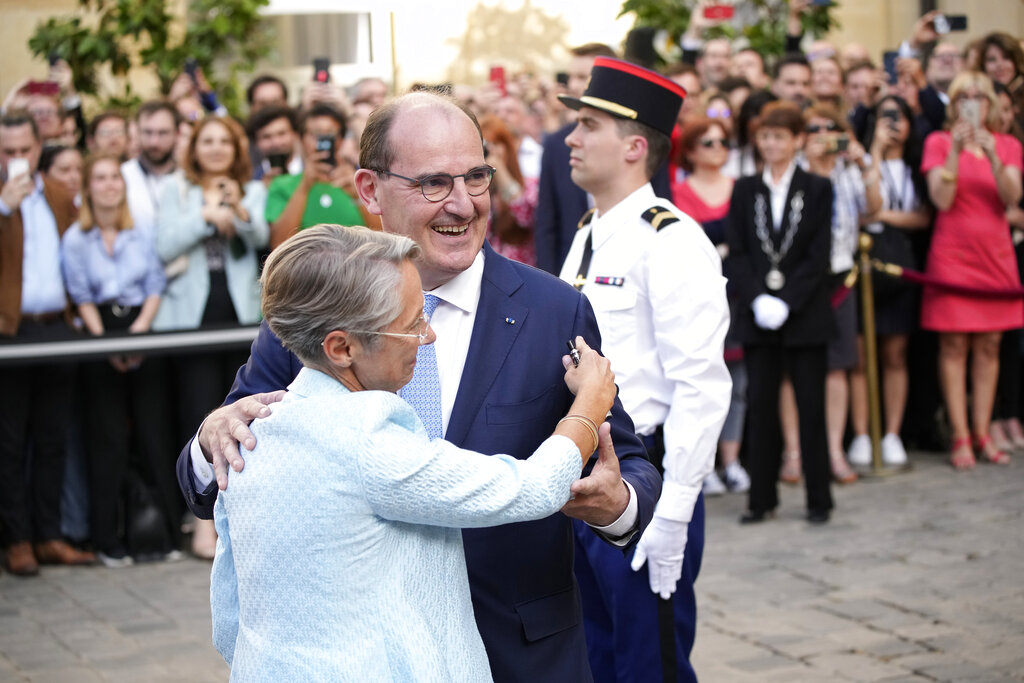French President Emmanuel Macron appointed former Labor Minister Élisabeth Borne as the new French prime minister on Monday to replace the outgoing Jean Castex, who submitted his resignation to the re-elected president as is tradition three weeks ago.
Borne becomes the first female French prime minister for 30 years.
According to a survey by the Ifop polling institute, 74 percent of French people wanted the president to appoint a female to the role.
On Monday afternoon, President Emmanuel Macron received Jean Castex in his office, who offered his resignation. According to a statement by the French presidential office, Élisabeth Borne, was “appointed prime minister and is in charge of forming a government.”
Subsequently, on Monday evening, the transfer of power between the former and new prime ministers was broadcast live on French television.
In his first public appearance following his re-election in late April, Macron indicated that he wanted to appoint a prime minister sensitive to social and environmental issues.
Borne, 61, has headed the Ministry of Labor since 2020, was environment minister from 2019 to 2020 and transport minister from 2017 to 2019. She served as a minister in former socialist governments and was also the strategic director of the French State Railways (SNCF). She joined Emmanuel Macron’s party in 2017 and has been a member of his government ever since.
The main task for the new head of government in the left wing of the Macron camp will be to implement the social reforms already announced by the head of state, above all the pension reform.
Édith Cresson, the only woman to date to be the French prime minister during the reign of socialist Francois Mitterrand for barely 11 months between 1991 and 1992, called the new prime minister a “very good choice” on BFM news television, but regretted the fact it had taken such a long time for a woman to lead the French government again.
The person at the head of government is important primarily because they indicate the direction in which the president of the Republic intends to take domestic policy over the next five years. While Macron’s previous two prime ministers, Édouard Philippe and Jean Castex, came from the conservative camp, Élisabeth Borne belongs to the centrist Reform Party.
On the day of his re-election, Macron promised to change his approach and take better account of the social dissatisfaction expressed in 2018 and 2019 by the so-called yellow vest movement.
The new government, which will be formed in a matter of days, is primarily expected to secure a parliamentary majority for further governance in the two-round parliamentary elections on June 12 and 19.
If the election was held now, polls show Macron’s party would get an absolute majority in the National Assembly. Borne is also running in the June election as a candidate of Emmanuel Macron’s La République en Marche (LREM) party.






